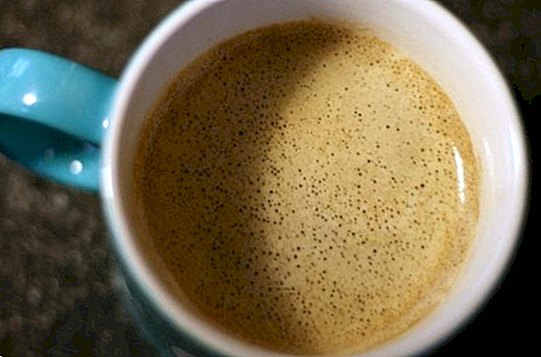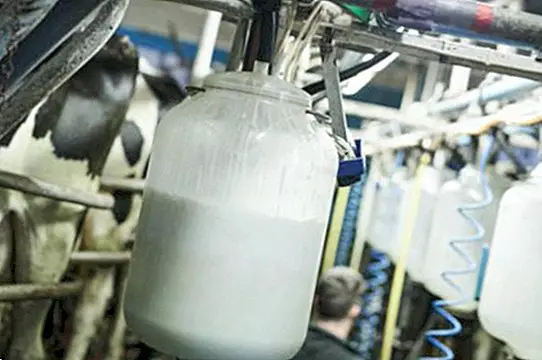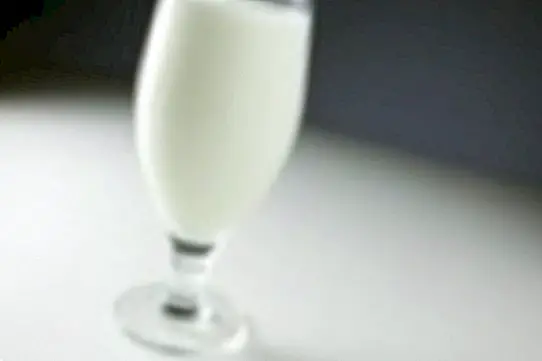Why you should avoid drinking hot drinks: risk of esophageal cancer
It is quite possible that at some other time it also happened to you: you are so eager to have that cup of tea or that hot cup of coffee that instead of waiting for you, from the moment you serve it you choose to take a sip ... With the misfortune of burning your lips and shouting to the four winds.
Or, it can also be, that you prefer really hot drinks and foods and that you actually enjoy eating them at high temperatures.
In one way or another, there has always been suspicion about the risks of drinking very hot drinks, as well as eat foods at high temperatures, without waiting for both to cool a little.
And is that, as has always been suspected above all from a medical point of view, the problem is not only the fact of burning or not the tongue and mouth. The risk, as we have known recently, is even more dangerous.
Some time ago, the International Agency for Research on Cancer (IARC) commissioned 23 scientists to analyze the possible consequences of consuming hot drinks (mate, tea, coffee ...).
To do this, they analyzed, for example, scientific studies carried out previously in countries such as China, Iran, Turkey and South America. In the eastern countries mentioned, it is very common to drink tea at high temperatures. While in South America, as you surely know, the hot drink par excellence is mate. The same thing would also happen with coffee.
After this analysis, the team of experts concluded that drink any hot drink -About 70 degrees centigrade- increases the risk of esophageal cancer, whose risk increases precisely according to the temperature of the drink, so that the higher that temperature is, the risk will be equally greater.
According to the scientists, "the results show that drinking very hot drinks probably causes cancer in the esophagus." It's more, the problem would not come from the type of drink itself but from the temperature it reaches, and the temperature at which this drink is ultimately ingested. 
We can put in this sense as an example drinks as healthy as is the case of tea or mate, de facto beverages with antioxidant properties that would help reduce the risk of suffering from certain types of cancers when they are consumed regularly. When the temperature at which they are taken is very high (above 70 degrees Celsius), that benefit would be reduced to the risk of becoming a "dangerous drink".
The same would happen with other apparently healthy drinks, as for example is the case of coffee.
Why hot drinks cause esophageal cancer
When we drink a very hot drink the heat produces irritation in the esophagus. When these drinks are consumed on a regular basis always at high temperatures, that irritation becomes a chronic inflammation of the esophageal tissue, which causes a cellular proliferation in order to repair it.
It is this cell proliferation that would cause a higher risk of carcinogenic mutations, and with it a higher risk of esophageal cancer. 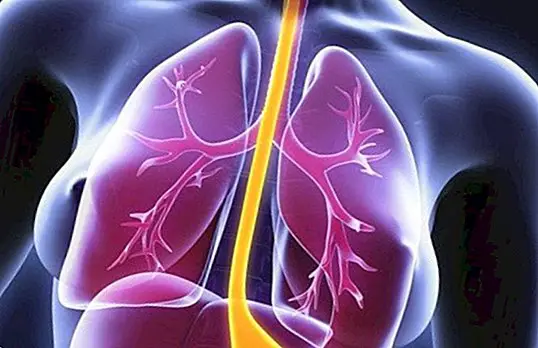
What is the esophagus?
The esophagus it's a part of the digestive system that communicates the pharynx with the stomach, and that consists of a kind of muscular tube about 25 centimeters long. The food and drinks that we consume pass through this tube, specifically from the pharynx to the stomach.
It is usually relatively hard and resistant in the same way as any other organ. It is usually divided into three distinct sections: cervical (at the top), thoracic (at the center) and abdominal (at the bottom).
What is esophageal cancer? It is dangerous?
The esophagus cancer, also known medically as esophageal cancer It is a rare type of cancer, which usually occurs especially in men over 50 years of age.
There are two main types of esophageal cancer: adenocarcinoma and squamous cell carcinoma. This last cancer is associated with the consumption of regular and / or excessive alcohol and with smoking. However, adenocarcinoma is the most common, which often arises after Barret's syndrome or acid reflux disease (which can in turn turn into Barrett's syndrome). 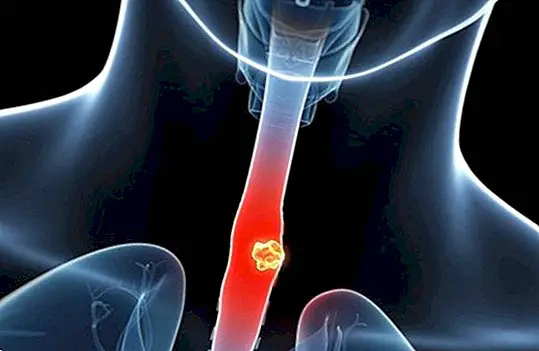
Its symptoms are usually the following: regurgitation (movement of food return through the esophagus), chest pain, difficulty swallowing liquids or solids, gastric acidity, vomiting of blood and weight loss without explanation.
It is usually a type of cancer with poor prognosis, usually because it is not usually diagnosed or identified in the earliest stages. The reason is that when some of the first symptoms arise (such as the inability to swallow well), the tumor may have already reached 3 centimeters.
